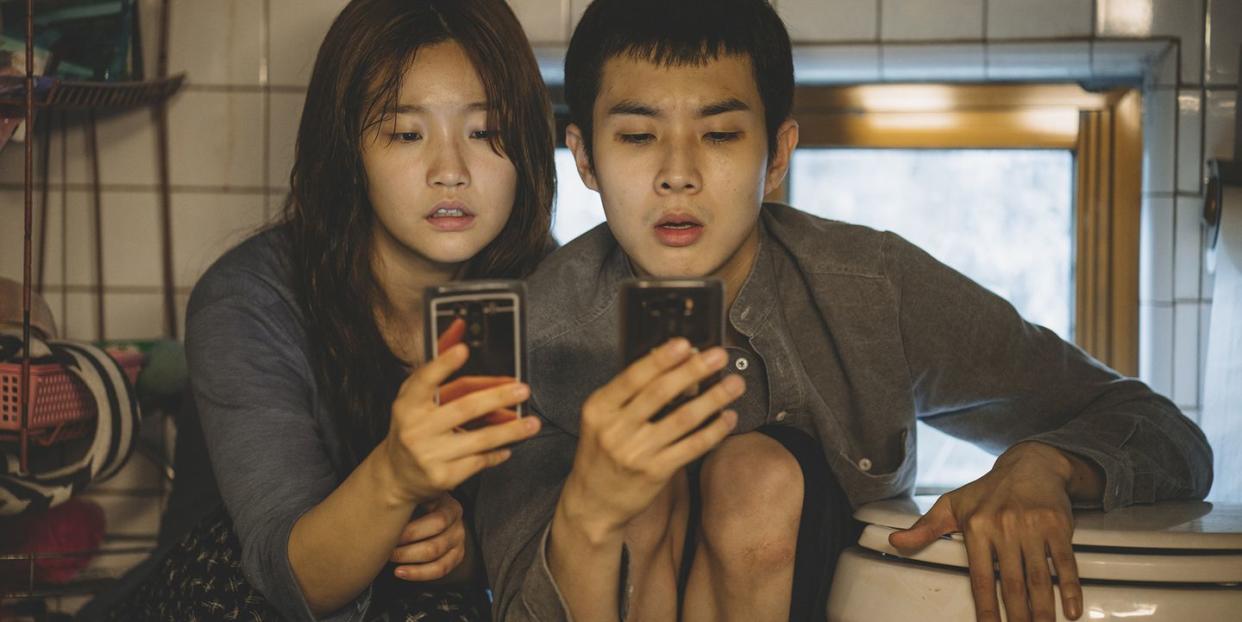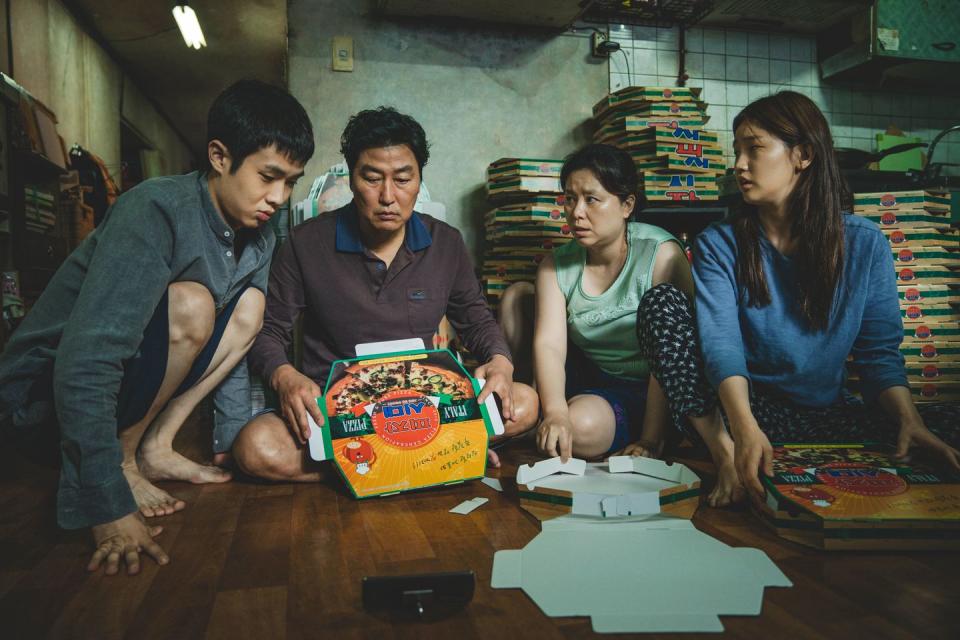'Parasite' Is the Only Movie That Deserves Best Picture

In a category dominated by emotionally hollow films, a tired remake, and a bevy of male characters asserting unearned authority, it’s ridiculous to have to advocate for the only real masterpiece among the bunch. Parasite’s accomplishments far exceed the diversity conversations it’s constantly pulled into as the first Korean film ever nominated for Best Picture. From sharp performances and writing to brilliant direction, cinematography and production design, Parasite is virtually flawless. If we’re talking about the most well-made film of last year—which I think is what the Best Picture category is supposed to be about—then we don’t have to look anywhere else.
But Parasite is a movie that probably has Academy members shook. It is dark, unapologetic, not in English (subtitles—the horror!), emphasizes the poor outsmarting the rich, and is a heartrending reflection of a loving family of color. It doesn’t have the cozy appeal of a sympathetic white couple in a collapsing relationship, as in the perfectly fine Marriage Story. It doesn’t have the increasingly ubiquitous white feminism of Little Women. And it doesn’t have the safe bet of white men confronting time, the system, or themselves, as in Ford v Ferrari, Joker, JoJo Rabbit, The Irishman, and Once Upon a Time in Hollywood.
Instead, Parasite is singular in its portrait of a destitute family that slyly procures a space of its own, and it doesn’t rely on poverty porn to get the point across. The central family, the Kims, pilfer neighboring Internet connections from the corners of their basement apartment and struggle to put food on the table. When they’re unexpectedly thrust into the orbit of the wealthy Parks, they covet the other family’s sumptuous leisure, but they’re not propelled by disdain. They’re good people with a simple desire: opportunity.

Parasite begs its viewers to check their moral compass as the Kims exploit their own legitimate prowess—computer genius, graphic design experience, and resourcefulness—to infiltrate the Park home as the family’s new tutor, art therapist, driver, and housekeeper. Are the Kims bad people for backdooring their way into gainful employment to acquire a better life for themselves?
The family’s occupation of a space that’s not theirs is a profoundly uncomfortable plot point, a button Bong and co-writer Han Jin-won seem to relish pushing. There’s never a moment when Kim Ki-woo (Choi Woo-shik), who initially spearheads the scheme, and his sister Ki-jung (Park So-dam) feel out of place, or so awed by their new digs that they barely maintain their faux personas. Their steel-cut composure, particularly with the lady of the Park house (Cho Yeo-jeong), reeks of confidence laced with just enough deference to comfort their new employers. And as the Kims’ plan rapidly unravels, their exchanges reflect a sorrowful determination that cuts you to the core.
The message of Parasite is “they belong,” though that also comes with unfathomable sacrifice—a jaw-dropping twist that rewires everything you think you know about the film and its characters. Just as quickly as Parasite provokes a sinister chuckle from its audience, it also urges us to take a look at our neighbors, perhaps for the first time, and embrace their humanity as we maintain our own.
Bong and his team bundled an urgent, intimate story with multiple layers—and not only the ones neatly packed within the dialogue—inside a movie of extraordinary scope and intention. Parasite, from its genuinely thrilling moments to its heartbreaking climax, managed to achieve what few films in 2019—or in even in recent history—has: near perfect, timeless filmmaking that connects with a global audience. If that doesn’t qualify it to win Hollywood’s highest honor, then we need to figure out what we’re even doing here.
You Might Also Like


